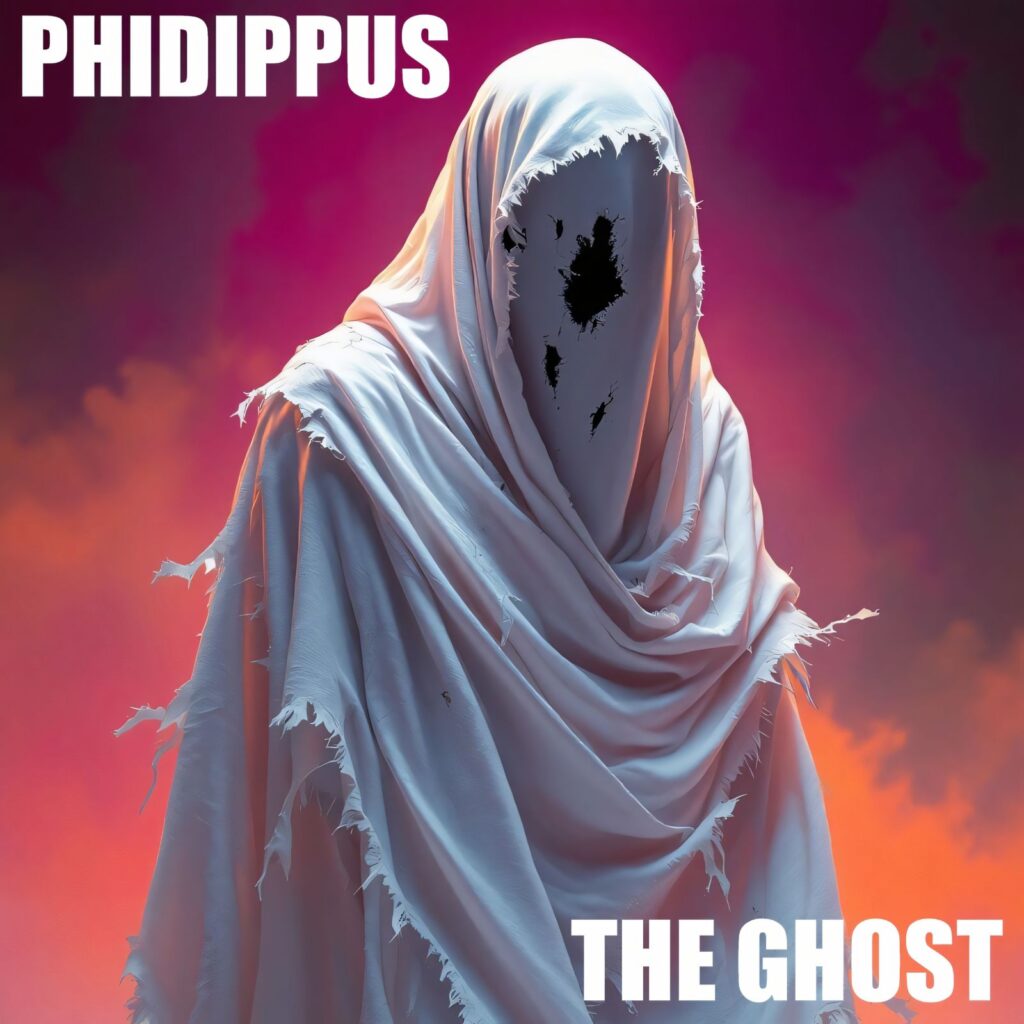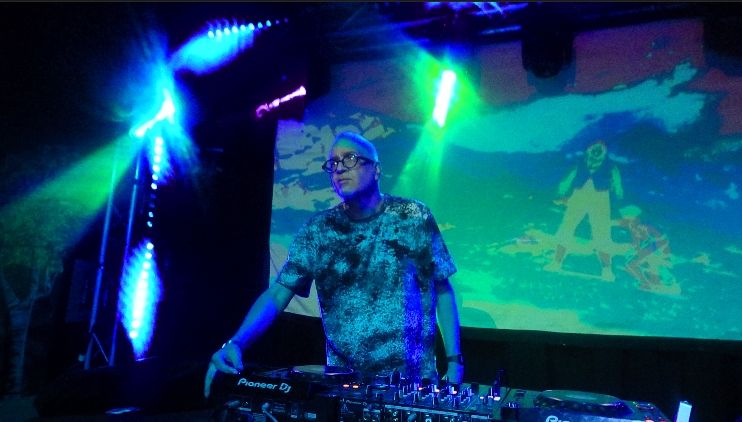Phidippus’s “The Ghost” – A Fearless Voyage Through Pain, Rhythm, and Rebirth.

The result of a forty-year sonic voyage, Phidippus (born Eric Salazar) makes his latest album, The Ghost, both the climax and the new beginning. Having almost three million streams under his belt and a history of television sync-licenses and club singles dating back to the late 1990s, he comes to this release as both an old school veteran and an impatient experimentalist. Following a life-changing car crash, a traumatic brain injury, and a long struggle to stay sane, Phidippus directs the raw material to the theme at the center of the album. After establishing a reputation for pushing the limits of electronic music through its restless, unstagnant nature, The Ghost comes as a fresh awakening —a meditation on loss, perseverance, and the discovery of self through sound. It is not another addition to his catalog; it is a proclamation of survival and artistic liberation, bringing listeners into his realm of rhythm, self-reflection, and musical narrative.
Getting deeper into the work, The Ghost, we can hear ten tracks tracing the landscape of trauma, healing, experimentation, and electronic energy. The song list includes songs like Aligning, Alone (AI Vox Redux), and others like City Lights (feat). Alley,” Water, The Ghost Aghast, Prodigy, Stay Right By My Side (feat). Alley), I Don’t Wanna, Funkatropic, and Blade Dancer. The production is pure and organic, like each layer of synth, percussion, and ambient wash is a feeling re-emerging in memory. The liquid drum and bass figures dance with movement, align, and water pulse with hypnotic hi-hats and rich basslines that recall emotional release, and the ghost aghast hit with darker undertones and sharp snares that reverberate anxiety turned rhythmic. Conversely, deep house music is characterized by a more meditative beat, layered with old-school pads and analogue warmth. Stay Right By My Side shines with its soulful vocal hook, whereas Blade Dancer smashes into a cinematic catharsis of arpeggios and kicks. The tension is relieved by Funktastic’s funky bass grooves, which highlight Phidippus’s fun-loving nature. There is an oblique sense of AI-assisted vocals in the song “Alone (AI Vox Redux),” which gives the air of ghosts of digital humankind, fitting the album’s title and overall mood perfectly. All his tracks are crafted but natural, and they hold on to his ethos throughout life that electronic music can serve as therapy and experimentation.
 To sum up, The Ghost is a masterpiece that not only demonstrates Phidippus’s technical skill but also his determination and spirit as an artist who transforms pain into art. This album is a reminder that, in an age of foreseeable electronic productions, experimentation in its purest form — risk, imperfection, emotion, and transcendence — blended into a single unified statement — is truly what this album sounds like. The lack of trends by Phidippus leads to something that will stand the test of time, somewhere close to the early pioneers of the same genre, such as 808 State and The Chemical Brothers, but very personal. The record is animated: it is full of ghosts of his past and glimmerings of his future, for listeners who are willing to hear something that heartbreaks, hopes, and rebirths. Then, The Ghost is a journey worth traveling on and hearing long beyond the final notes. Phidippus does not merely revisit his past; he remonstrates with it, showing that even amid the reverberations of injury, the music can still point the way.
To sum up, The Ghost is a masterpiece that not only demonstrates Phidippus’s technical skill but also his determination and spirit as an artist who transforms pain into art. This album is a reminder that, in an age of foreseeable electronic productions, experimentation in its purest form — risk, imperfection, emotion, and transcendence — blended into a single unified statement — is truly what this album sounds like. The lack of trends by Phidippus leads to something that will stand the test of time, somewhere close to the early pioneers of the same genre, such as 808 State and The Chemical Brothers, but very personal. The record is animated: it is full of ghosts of his past and glimmerings of his future, for listeners who are willing to hear something that heartbreaks, hopes, and rebirths. Then, The Ghost is a journey worth traveling on and hearing long beyond the final notes. Phidippus does not merely revisit his past; he remonstrates with it, showing that even amid the reverberations of injury, the music can still point the way.
-
🌍 Official Website: www.phidippus.org
-
🎵 Spotify: Phidippus on Spotify
-
🎧 SoundCloud: Phidippus on SoundCloud
-
💽 Bandcamp: Phidippus on Bandcamp
-
🎥 TikTok: @phidippus on TikTok



